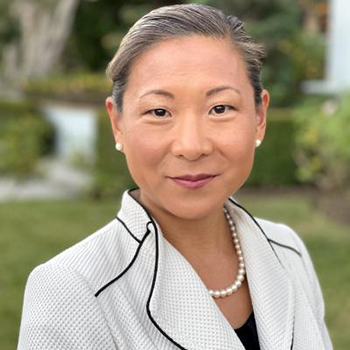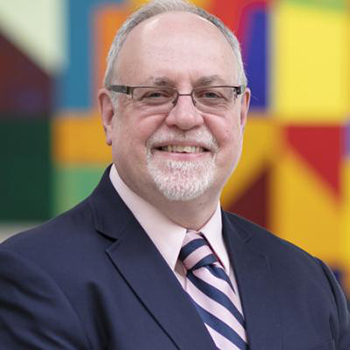UC nursing schools collaborate to expand the mental health care workforce
Share This Article

By the UC Health Newsroom
While the academic school year just ended for many, it’s only just beginning for this new cohort of nurse practitioners.
On July 1, the University of California will welcome a group of students who are among the early participants in a program that’s growing California’s mental health workforce.
This special cohort of nurse practitioners (NPs) is expanding their credentials through a systemwide post-master’s, one-year, online/hybrid certificate program for psychiatric care for practicing NPs and other advanced practice registered nurses.
The first-of-its-kind initiative in California, the UC Psychiatric Mental Health Nurse Practitioner (PMHNP) certificate program draws upon the expertise of the four UC nursing schools to expand the mental health provider workforce and increase access to psychiatric and behavioral health care.
After completing the UC PMHNP academic certificate program, administered by the Betty Irene Moore School of Nursing at UC Davis in collaboration with all the UC nursing schools, the graduating PMHNPs will be able to join integrated care teams. They will be authorized to prescribe psychotropic medications, treat severe mental illness and substance abuse disorders and offer psychiatric care.

Deena Shin McRae, M.D., celebrates the UC PMHNP program’s goal of better equipping graduates to address California’s mental health crisis, particularly in underserved communities.
The call for increased access to psychiatric care
According to a California Health Care Foundation survey, over 50 percent of Californians living with mental illness shared that they’re not receiving psychiatric or behavioral health care, conditions exacerbated by the COVID-19 pandemic. Many California communities, especially those in rural and inland areas, have only half as many psychiatrists as other parts of the state.
There are calls for a statewide, innovative solution to expand the mental health provider workforce – especially in rural areas where shortages are often more acutely felt. A UCSF Healthforce Center study speaks to the role that nurse practitioners have in meeting the growing need for psychiatric and behavioral health care, especially given the backdrop of an aging psychiatric workforce. Furthermore, a national study has shown that NPs are also more likely to reside and practice in rural and underserved areas.
Answering the call: UC nursing schools come together to expand the mental health provider workforce
In 2021, the four UC nursing schools welcomed the first cohort of 38 students to the multicampus UC PMHNP certificate program, answering the call for an expanded mental and behavioral health workforce. The program launch was possible through a collaborative effort and investment from the California Health Care Foundation and, later, the California Department of Health Care Access and Information (HCAI).
The 48-unit graduate academic certificate provides course work and clinical experiences to allow licensed nurse practitioners to qualify for a national board certification examination, enabling them to become board-certified PMHNPs and care for psychiatric and mental health patients.
The program is primarily geared toward NPs and other advanced practice registered nurses (APRNs) who want to further their education and expand their roles by serving the psychiatric patient population in their local communities.
Even though the COVID-19 pandemic postponed the initial start date, 112 PMHNPs have graduated from the program. When the 2024 cohort completes the certificate program in a year, it will bring the number of UC PMHNP alums to 150.
“Expanding the behavioral health workforce through the UC PMHNP program means California is better equipped to respond to the growing mental health crisis that’s happening across the state, especially in rural communities,” says Deena Shin McRae, M.D., UC Health associate vice president for academic health sciences and clinical professor of psychiatry at UC Irvine School of Medicine. “After trainees graduate from the UC PMHNP program, they’ll be able to address patients’ behavioral health needs as leaders and key members of interdisciplinary care teams. I’m excited by the collaboration across the four UC nursing schools as we work to be part of the solution to increase patient access to critical services.”

UC Davis Betty Irene Moore School of Nursing Dean Stephen Cavanagh, Ph.D., looks forward to UC nursing schools’ and students’ role in creating a statewide solution for mental health care needs.
Students participate in at least 500 hours of clinical experiences in their communities during all four quarters, and take case-based immersion courses at UC Davis. The nursing faculty at UCI, UCLA and UCSF are also involved in recruiting clinical placements, mentoring students and teaching the curricula.
Course offerings study sociocultural factors affecting individuals’ ability to access and engage in health care, examine structural barriers and system-level approaches to caring for patients and help students develop clinical decision-making and leadership skills.
The hybrid learning model allows students to take part in the UC PMHNP program from their home or work, regardless of what area in California they reside in. Simulation labs also allow for synchronous practice and feedback anywhere in the state, and the hybrid/online model equips students with the realities of serving as a PMHNP in a telehealth environment.
A new home for the UC PMHNP certificate program at UC Davis
This is the first year the Betty Irene Moore School of Nursing at UC Davis will oversee UC PMHNP program admissions, which the UCSF School of Nursing previously administered.
“This partnership across the UC Schools of Nursing serves as a testament to the power of collaboration and how, together, we can expand the impact we have for those in desperate need of mental health services, says Stephen Cavanagh, Ph.D., dean of the Betty Irene Moore School of Nursing at UC Davis. “Whether in Southern California, the Bay Area or the large area that spans UC Davis’s service area – including the Central Valley, the Capital Region and up to the Oregon border – our nursing schools and students are part of a statewide solution to meet the needs of our growing population.”
This year’s UC PMHNP cohort, the program’s fourth, will begin classes on July 1. For more information about the program, visit UC Psychiatric Mental Health Nurse Practitioner Certificate Program.
